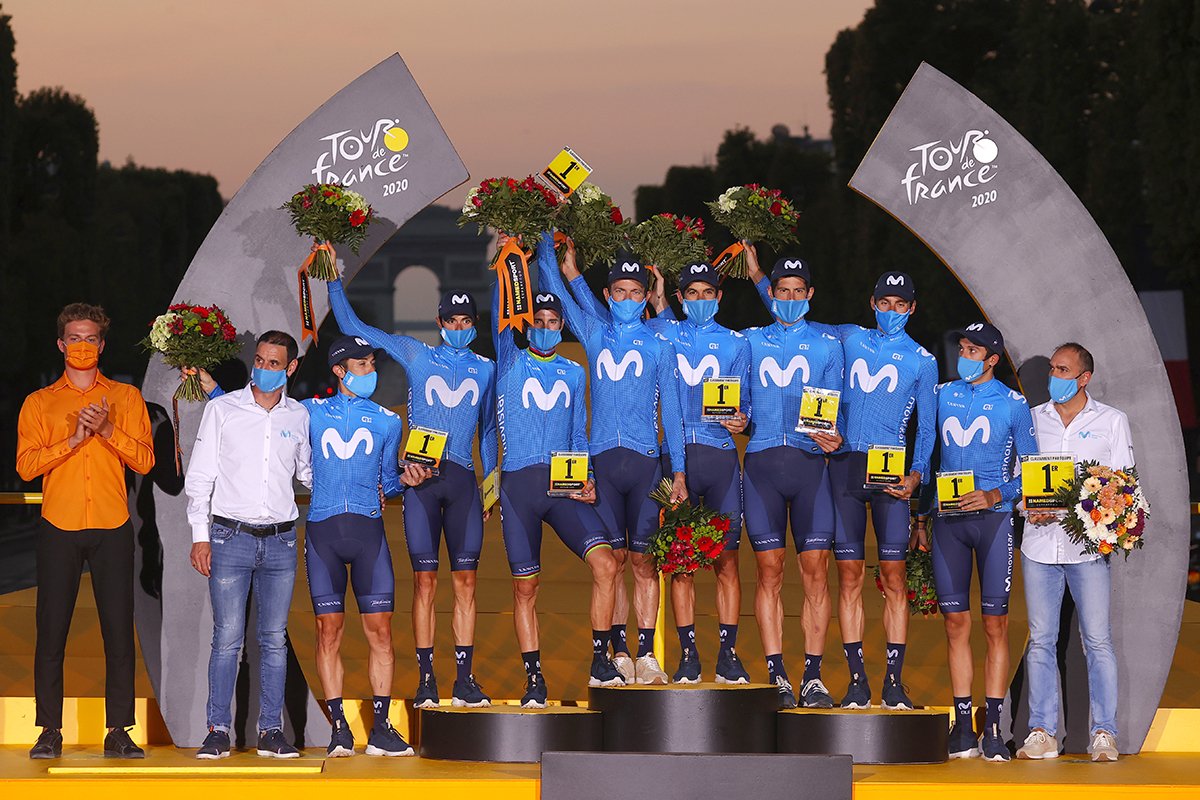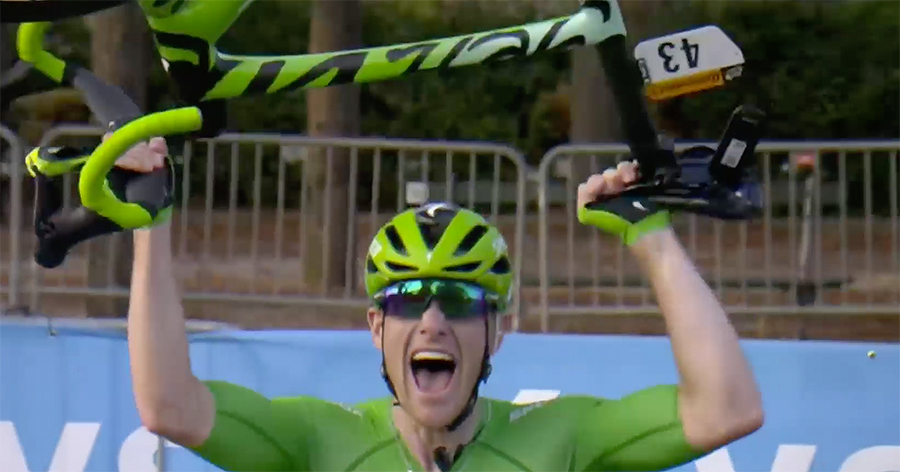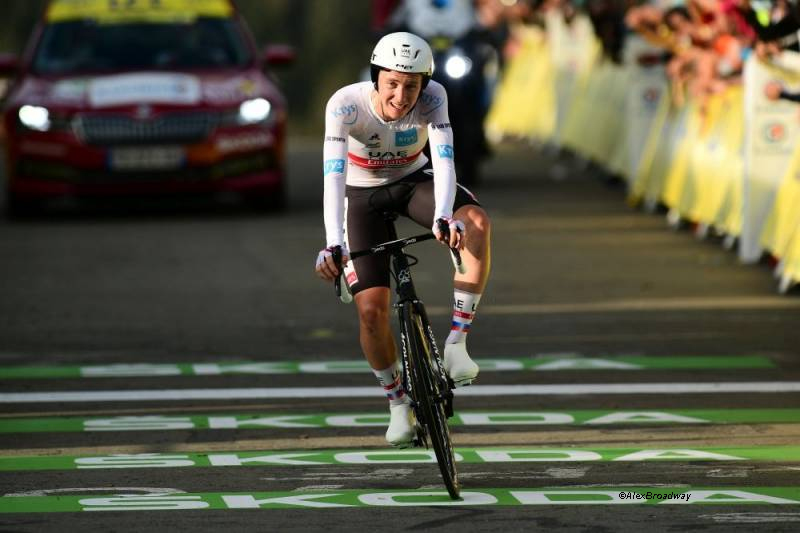Wall Street Journal Article:by Jason Gay, 9/3/2020
“Suitcase of Porridge! The Tour de France Is in France, and the Voice of Cycling Is Stuck in England
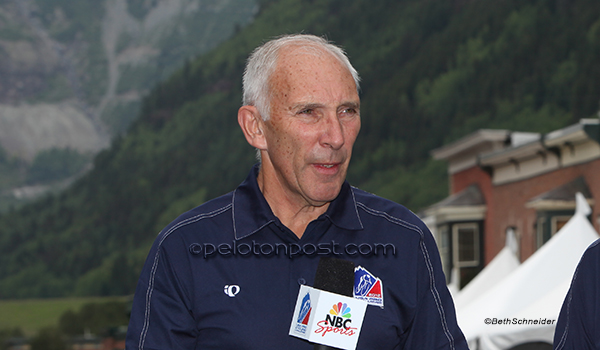
Phil Liggett has called every Tour de France—from France—since 1973. Now he’s working from England due to the pandemic.
“The pandemic-delayed 107th edition of the Tour de France is under way, and in the English county of Hertfordshire, the locals are surprised to see an affable white-haired neighbor, stuck in town, instead of somewhere in the Alps, lyrically expounding on bike racing:
Phil Liggett is working from home.
“They’re all laughing at me,” Liggett said. “They can’t believe it. They see me walking around the village and say, ‘What the hell are you doing here?’ I say, ‘Well, I’m locked down. Can’t go anywhere.’ I’m a fish out of water.”
The energetic U.S. television voice of cycling’s biggest race—famous for rhapsodic phrases like, He’s digging deep into his suitcase of courage! when a rider pushes his physical limits—Liggett is supposed to be barreling around the switchbacks of France right now, calling every stage as the peloton winds its way to Paris.
But the coronavirus disrupted the usual production plan. Instead of 20 odd nights in 20 odd hotels, Liggett is sleeping in his own bed, eating in the kitchen of his own cottage, and hopping in a car each morning for a 90-minute ride to a studio near Heathrow Airport, where he watches the race on a monitor and calls it remotely for his employer, NBC Sports.
Liggett, 77, has narrated the Tour de France from France without interruption since 1973, when Georges Pompidou was the country’s President. When this year’s Tour was delayed close to eight weeks from its usual July start—it kicked off Aug. 29 in Nice—it gave Liggett fresh perspective on what he’s missed all these years.
“I’d never seen the weather in July in England since 1972,” he said. “It was quite nice.”
He continued. “My garden just looks fabulous. I do all the gardening myself. I’ve got two big, huge ponds full of nice, big fish. They were surprised they were fed in the month of July, I’ll tell you.”
Another Hertfordshire local unaccustomed to seeing Liggett padding around at home during a Tour de France? His wife of 49 years, Trish.
“To have had him around for months on end has been very odd,” Trish Liggett, a dancer, told me.
She chuckled. “I’ve had him under my feet for way too long.”
A former speedskater who represented Britain at the Winter Olympics in 1968, Trish is no stranger to the cycling life, having worked for years as a “soigneur” assistant to professional teams. She appreciates what a radical change this summer is for the couple, who also spend part of the year in South Africa.
“It’s quite nice,” she said. “We can have a glass of wine when he comes back, and supper together, which makes a change.”
“I’ve got plenty of French wine in the house,” said Phil.
Phil Liggett has called the Tour for so long, he can look at a stage map of the race and know exactly where he’d stay and eat for dinner. For decades, his travel companion was Paul Sherwen, a former racer who became Liggett’s on-air partner. Sherwen died suddenly of heart failure in 2018, but before then, Paul & Phil were an inseparable duo—Sherwen at the wheel, Liggett with the map.
“Last night, we would have stayed the night in Gap,” Liggett said of the Alpine town. “The Hotel Mercure is at the top end of the main street—great hotel, but I don’t like the restaurant. Paul and I would have walked the beautiful road south, and probably found a pizzeria or something and enjoyed ourselves, had a bit of a laugh.”
Instead, Liggett’s rising with a coffee and porridge, and going over his notes on the daily ride to West London.
This year’s NBC Tour production is a technological marvel. While Liggett narrates the action from England, his partner, the former U.S. pro Bob Roll, is at a studio across the Atlantic in Stamford, Conn. Liggett and Roll have a “spy cam” through which they can look at each other for cues. But they’re still on separate continents, calling a race in a country neither is in.
“Smoother than I ever imagined,” Roll said. “It’s quite miraculous, how the technology has advanced.”
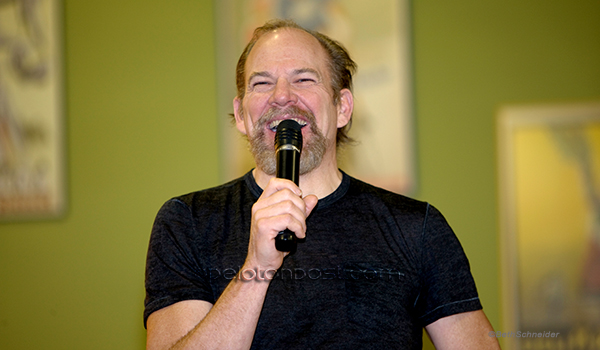
Roll, five hours behind, has the tougher wake-up call. While Liggett gets up at a civilized time, Roll’s alarm is set for a ghastly 3:45 a.m.
“When I see him walk in with his cards, taking his jacket off, [I think] ’Oh, poor bugger has been up early hours of the morning,’” Liggett said.
A truth about televising the Tour de France is that even when the announcers are in the host country, they’re almost never watching the race in person, with their own eyes. Instead, they’re cooped up in a mobile studio equipped with multiple monitors, so they can see all the action in a stage that passes through multiple towns and villages and can last 120 miles.
Being on the ground has its advantages, Liggett said. The Tour de France is a gossipy race with a volatile mood—each day, he can talk to the teams and the riders, and learn who’s feeling good, and who’s not. “You don’t find that out until you speak to people,” he said.
The missing member of NBC’s usual Tour unit—which also includes ex-pros Christian Vande Velde and Chris Horner—is Steve Porino, the in-race motorcycle correspondent. Travel restrictions on U.S. residents made it difficult to get Porino into France, so he’s on vacation with his family in Maine, as former British racer Adam Blythe fills in.
“I miss those guys,” Porino told me. “I’ve spent almost a full year of my life on the back of a motorcycle.”
Liggett is a little stunned the Tour is even happening. If you’d asked him earlier in the summer, he’d have given the race less than a 50% shot. With strict protocols and virus testing, there’s no guarantee it will finish as planned on Sept. 20. “We don’t know if this race will reach Paris, even now,” he said. “But I’m getting more and more confident day by day.”
Meanwhile, you know who’s been riding a bicycle all summer? Phil Liggett. He’s been alternating between a Canyon road bike and a Specialized e-bike.
“I’ve been riding every day, by myself, maybe 30, 40 miles,” he said.
Turns out calling a Tour de France from England isn’t so bad after all.
“I thought there was no other life than working on bike races,” Phil said. “But now it’s changed completely. I am quite enjoying it, in all honesty.”
“Phil just adapts to wherever he is,” said Trish Liggett. “If he was doing it on board a ship, he’d adapt to it. If he was doing it on a spaceship, he’d adapt to it. He’s like that. He just gets on with the job.”
But this was different. In a few minutes, a car would rumble outside. Phil Liggett was home.

